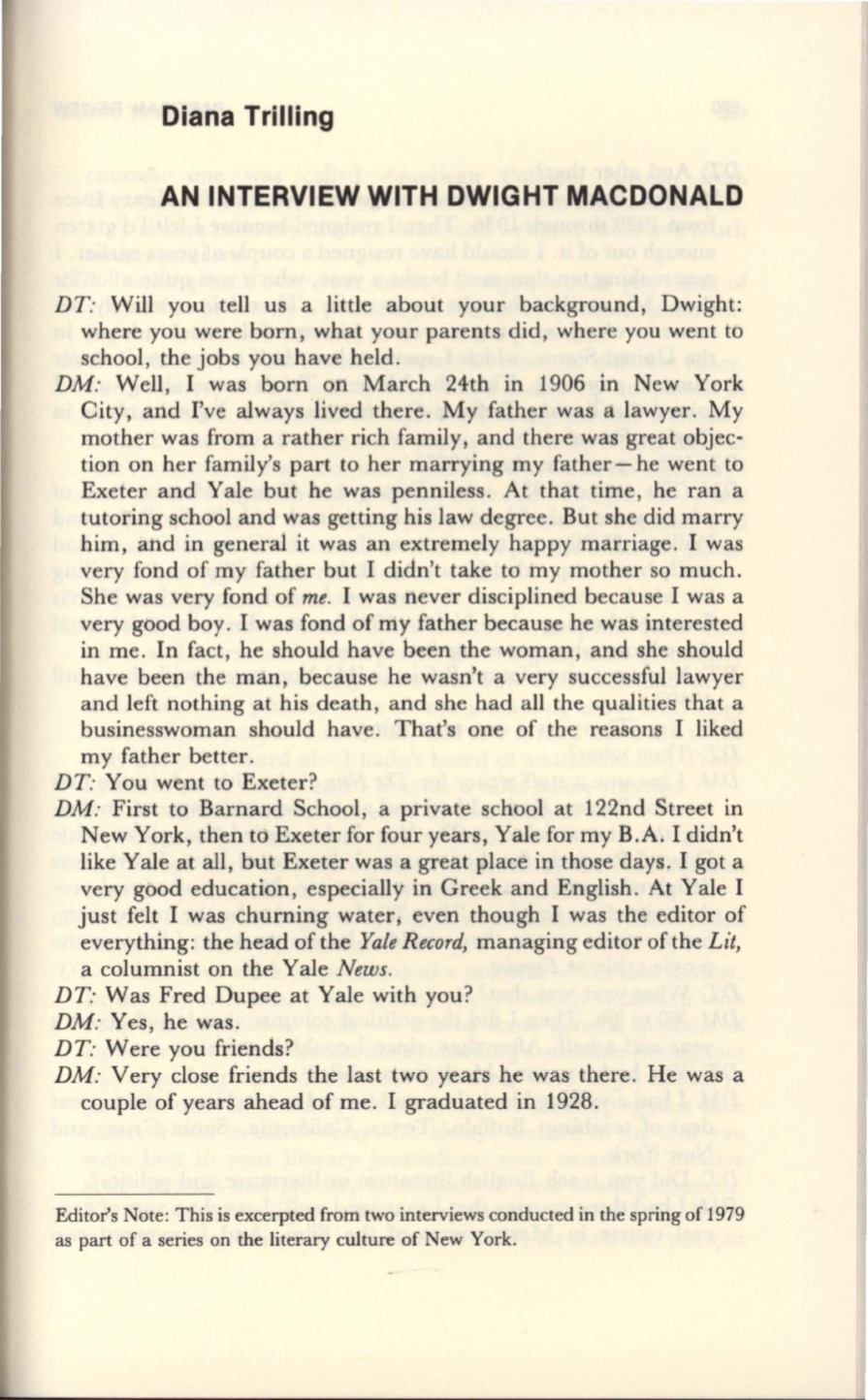
Diana Trilling
AN INTERVIEW WITH DWIGHT MACDONALD
DT:
Will you tell us a little about your background, Dwight:
where you were born, what your parents did, where you went to
school, the jobs you have held.
DM:
Well, I was born on March 24th in 1906 in New York
City, and I've always lived there. My father was a lawyer. My
mother was from a rather rich family, and there was great objec–
tion on her family's part to her marrying my father- he went to
Exeter and Yale but he was penniless. At that time, he ran a
tutoring school and was getting his law degree. But she did marry
him, and in general it was an extremely happy marriage. I was
very fond of my father but I didn't take to my mother so much .
She was very fond of
me.
I was never disciplined because I was a
very gbOd boy. I was fond of my father because he was interested
in me. In fact, he should have been the woman, and she should
have been the man, because he wasn't a very successful lawyer
and left nothing at his death, and she had all the qualities that a
businesswoman should have. That's one of the reasons I liked
my father better.
DT:
You went to Exeter?
DM:
First to Barnard School, a private school at 122nd Street in
New York, then to Exeter for four years, Yale for my B.A. I didn't
like Yale at all, but Exeter was a great place in those days. I got a
very good education, especially in Greek and English . At Yale I
just felt I was churning water, even though I was the editor of
everything: the head of the
Yale Record,
managing editor of the
Lit,
a columnist on the Yale
News.
DT:
Was Fred Dupee at Yale with you?
DM:
Yes, he was .
DT:
Were you friends?
DM:
Very close friends the last two years he was there . He was a
couple of years ahead of me. I graduated in 1928 .
Editor's Note: This is excerpted from two interviews conducted in the spring of 1979
as part of a series on the literary culture of New York.


